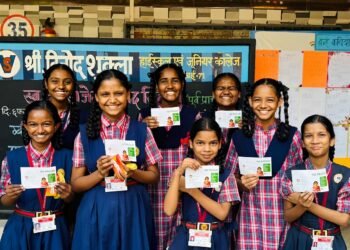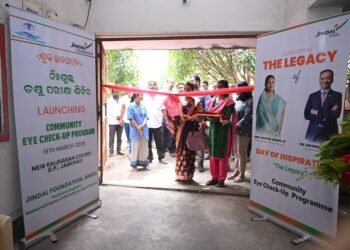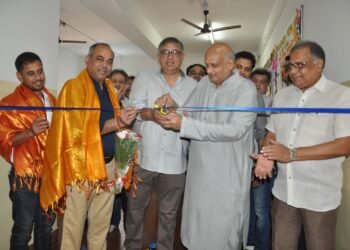MUMBAI (India CSR): Health activists have criticized Maharashtra’s healthcare system, assigning it a failing grade of ‘F’ (23 out of 100) for its performance, especially concerning women’s healthcare. As the state prepares for elections, activists from Jan Arogya Abhiyan (JAA) and other NGOs have pointed out significant gaps, particularly in women’s health and child nutrition, calling for immediate policy reforms.
Rising Anaemia Rates Among Women
NGO representatives expressed alarm over the rising anaemia rates among women. According to the National Family Health Survey-5 (2019-2021), 57% of women in Maharashtra are anaemic, up from 53% in NFHS-4 (2015-2016). Swati Rane from JAA noted that despite financial support under schemes like “Ladki Bahin Yojana,” there is no comprehensive healthcare policy tailored for women’s health needs.
Dr. Abhay Shukla of JAA highlighted the lack of accessible healthcare for pregnant women, stating that many are referred to distant hospitals for delivery due to limited operating hours at local primary health centres. “Pregnant women only receive one free sonography scan and must pay for additional scans out of pocket,” he added.
Health Report Card and NGO Demands
At a meeting on Tuesday, JAA unveiled its “report card” on Maharashtra’s healthcare, highlighting areas needing urgent improvement. The group also presented a healthcare manifesto for political parties to consider. Key demands include enacting a ‘Right to Health Act,’ doubling state health expenditure, addressing medicine shortages in public facilities, and regulating private healthcare.
Dr. Girish Bhave underscored the need for increased funding, pointing out that Maharashtra’s per capita health expenditure stands at Rs 1,979, below the national average of Rs 2,300. “Healthcare in Maharashtra is in critical condition,” he observed, comparing the situation to an ICU.
Patchy Coverage of Aapla Dawkhanas
The Aapla Dawakhana initiative, intended as a public health achievement, also drew criticism for its limited reach. While Mumbai has over 200 Aapla Dawkhanas, the rest of Maharashtra has only 417, leaving significant gaps in outpatient care. JAA pointed out that even if all clinics were fully operational, they would cover only 10% of urban outpatient care outside of Mumbai.
Malnutrition and Child Health Concerns
Maharashtra’s efforts to reduce malnutrition have been deemed ineffective by activists, who highlighted the state’s second-highest rate of stunting (44.6%) according to the Union government’s Poshan tracker. Additionally, the state budget for supplementary nutrition was reduced from Rs 4,367 crore in 2023-2024 to Rs 3,266 crore in 2024-2025. Dr. Shukla advocated for the return of hot meals at village child development centers, as children are now given commercially produced paste packets, which he argued are less nutritious.
Limited Success in Healthcare Coverage
The only area where Maharashtra received positive marks was in expanding the coverage of the Mahatma Jyotirao Phule Jan Arogya Yojana (MJPJAY), which now covers 20% of the state’s hospitalizations. However, JAA noted that out-of-pocket expenses for healthcare remain high, leaving many vulnerable families financially strained.
A Call for Comprehensive Reform
NGOs emphasized the urgent need for a holistic healthcare policy addressing both preventative and curative services. “Maharashtra needs a robust healthcare system that addresses women’s health, child nutrition, and affordable treatment options,” said Dr. Shukla.
This assessment serves as a wake-up call for policymakers, highlighting the urgent reforms needed to ensure accessible, quality healthcare across Maharashtra, particularly for women and children.
📢 Partner with India CSR
Are you looking to publish high-quality blogs or insert relevant backlinks on a leading CSR and sustainability platform? India CSR welcomes business and corporate partnership proposals for guest posting, sponsored content, and contextual link insertions in existing or new articles. Reach our highly engaged audience of business leaders, CSR professionals, NGOs, and policy influencers.
📩 Contact us at: biz@indiacsr.in
🌐 Visit: www.indiacsr.in
Let’s collaborate to amplify your brand’s impact in the CSR and ESG ecosystem.






























